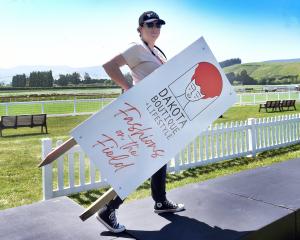There are days when the wind can blow your hat off, and then there are rare moments when the weather conditions are perfect for blowing your socks off.
MetService meteorologist Dan Corrigan said tornadoes were extremely rare and difficult to predict, and many things had to align for them to form.
Nevertheless, one formed on Saturday when a cool southerly sea breeze moved up the Clutha River Valley from the Otago coastline and met a hot northeasterly moving down the valley from Lauder.
"What this did was, these winds from different directions at the surface, injected some spinning into the motion of the air there, and when a large thunderstorm cell moved over the top, it created the conditions necessary to form a small tornado.
"The conditions were just right.
"It was a very small, localised phenomenon, but very damaging."

"The wind was only gusting 50kmh to 60kmh at nearby weather stations, but it would have been a lot more than that in the vicinity of the tornado.
"If it’s enough to take off part of a roof, that speaks for itself."
He said the unsettled weather over the southern region also brought very heavy rain over northern Southland.
"There were a number of thunderstorms across Southland as well and we recorded some really quite unusually heavy rain out of those.
"For context, 25mmh is what we class as a downpour, and they don’t happen very often.
"Between 7pm and 8pm on Saturday, at Five Rivers Station, just north of Lumsden, they recorded 43.5mm of rain.
"It’s one of the highest I’ve seen here in my time."
Mr Corrigan said it was difficult for meteorologists to forecast tornadoes because there were very fine-scale factors to be measured.
"While we can say there is a risk of thunderstorms over an area and a risk of localised downpours or wind gusts, it’s very difficult to forecast tornadoes.
"Tornadoes are very rare in our part of the world, especially compared to the United States where they get much bigger super-cell thunderstorms which bring really big and destructive tornadoes.
"What we saw in Alexandra doesn’t really hold a candle to what they see in the United States."














